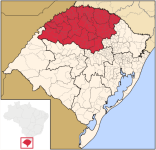NotDavidSoslan
Active member
In the 2020 Brazilian general election, the PSB was returned to power with a fairly static showing, losing 4 seats (mostly to the economically nationalist PNB) while making negligible gains in the popular vote.
Although the PDC had to deal with the growth of the far-right PNB as a populist alternative to the status quo, they still flipped five seats, retaining their longtime status as the official opposition to the PSB.
Prime Minister Flávio Dino managed to mostly unite the left during his premiership, leading to the United Left coalition losing 19 seats and falling to single digits of the popular vote. Polling for the 2025 general election is not favourable to them either.
The PNB did best in provinces with the highest concentration of evangelical voters, or in depressed working-class areas such as the ABC Paulista. They advocated for protectionism and a reindustrialisation program, and opposed COVID restrictions, appealing to working class Brazilians who felt they had been harmed by neoliberalism, free trade and lockdowns.
The 1940 general election focused on World War II, as Brazil was already a great power by then.
The ruling PSB, as well as the declining PL, supported the Allies, while the PR, PC and AIB were isolationists to varying degrees, the latter being a fascist party. Other issues included transportation (highways vs railways) and the construction of Brasília, which the PR, led by right-wing corporatist Getúlio Vargas, promised to audit.
The PSB won the general election due to the good economy and popularity of its social democratic policies, as well as the support of black people and trade unions for the Allies.
Although the PDC had to deal with the growth of the far-right PNB as a populist alternative to the status quo, they still flipped five seats, retaining their longtime status as the official opposition to the PSB.
Prime Minister Flávio Dino managed to mostly unite the left during his premiership, leading to the United Left coalition losing 19 seats and falling to single digits of the popular vote. Polling for the 2025 general election is not favourable to them either.
The PNB did best in provinces with the highest concentration of evangelical voters, or in depressed working-class areas such as the ABC Paulista. They advocated for protectionism and a reindustrialisation program, and opposed COVID restrictions, appealing to working class Brazilians who felt they had been harmed by neoliberalism, free trade and lockdowns.
The 1940 general election focused on World War II, as Brazil was already a great power by then.
The ruling PSB, as well as the declining PL, supported the Allies, while the PR, PC and AIB were isolationists to varying degrees, the latter being a fascist party. Other issues included transportation (highways vs railways) and the construction of Brasília, which the PR, led by right-wing corporatist Getúlio Vargas, promised to audit.
The PSB won the general election due to the good economy and popularity of its social democratic policies, as well as the support of black people and trade unions for the Allies.


